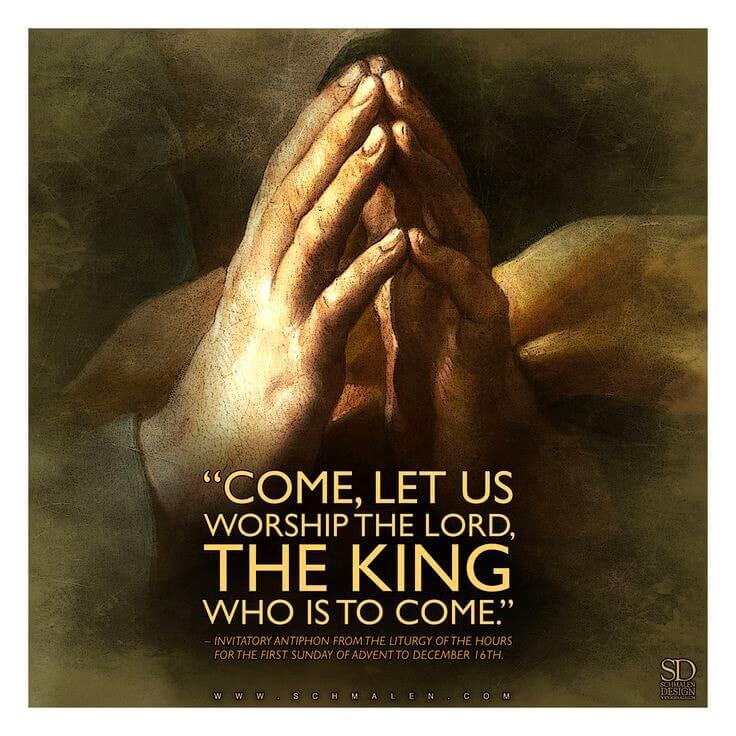
A prison cell, in which one waits, hopes – and is completely dependent on the fact that the door of freedom has to be opened from the outside, is not a bad picture of Advent (Dietrich Bonhoeffer)
Today we begin the season of Advent. This season invites us to prepare ourselves not only to commemorate the historical birth of Jesus but also for the second coming of Jesus. Why did Jesus come again? St. John writes in his gospel: “All things came into being through him, and without him, not one thing came into being. What has come into being in him was life, and life was the light of all people.” In the fullness of time, this eternal logo became man in order to redeem the entire creation from the bond of sin. St. Paul acknowledges this fact in his letter to the Galatians: “When the fullness of time had come, God sent his Son, born of a woman, born under the law.” (Gal.4:4) He is the alpha and the omega. Everything will culminate in him. Therefore, Jesus will come again to complete his salvific mission. The second coming was a major theme in his parables and teachings. The parable of the last judgement, the parable of the talents, the parable of foolish and wise virgins, etc. represent the second coming of Jesus. The early Christian disciples thought that the second coming of Jesus would happen immediately, but it did not happen in the first century or in the past twenty centuries. That does not mean that it will never happen. The second coming of Jesus is part and parcel of Christian hope.
In today’s gospel, we see Jesus exhorting his disciples to stay awake and be prepared to encounter the master. It can happen to all of us that when we plan to do something, if we think there is an excess of time at our disposal, we may postpone or remain lazy. At the end, we may not fulfil the task in due time. The same thing can happen in our spiritual journey too; if we think the second coming of Jesus may not happen immediately, then we may take our time for granted and forget to prepare ourselves to meet the Lord.
What is the problem if we are not ready to receive the master? A detailed study of the parables tells us that Jesus expects all of us to be prepared. The parable of the wise and foolish virgins, the master in the parable of the talents, etc. communicate to us the fact that the Lord expects certain accountability from the servants in his return. Those who failed to give their accountability were sent out of the presence of the master, and they did not get a chance to partake in the banquet with the master.
As we prepare ourselves for the feast of Christmas, let us keep in mind that Christmas is not merely a historical moment to celebrate Christ’s birth or to celebrate it; rather, it is a reminder and occasion that he will come again. In the busy schedules of our lives, the second coming of Jesus might be the least bothered reality in our lives. We see in many countries now that Christmas is not even remembered as an occasion that reminds us of the birth of Christ but only as a winter festival. If so, then who bothers with the second coming of the Lord? Some of our brethren consciously deny these dimensions of this season or live with an agnostic mindset of not bothering about these vital hopes of our faith. We fall into the category of those servants who failed to stay awake and remain alert at the coming of the Master. May this season of advent help us to be spiritually awake, and may the responsorial psalm of the day be the constant prayer of our lips: “Lord, make us turn to you; let us see your face, and we shall be saved.”